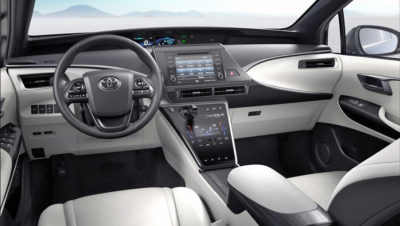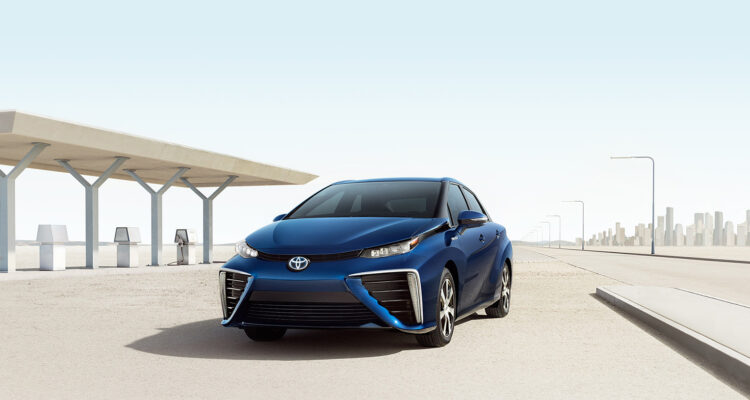Confident that global sales of fuel cell electric vehicles (FCEV) will increase at least 10-fold after 2020 to at least 30,000 a year from today’s 3,000, Toyota has unveiled plans for two major new facilities in Japan.
They are a brand new building near its original auto factory for expanding fuel cell stack mass production along with a new line in the Shimoyama plant to manufacture high-pressure hydrogen tanks.
The fuel cell stack generates the on-board electricity from a chemical reaction between hydrogen and oxygen which propels FCEVs and produces zero emissions The tanks store the hydrogen fuel. The company says manufacturing both components at scale is critical to achieving lower system costs and wider availability of fuel cell vehicles.
To boost fuel cell stack output, Toyota is building a new eight-floor high-tech facility at its current location in an existing building at its Honsha plant in Toyota City.

Production of the extra-thick carbon fiber high-pressure hydrogen tanks will be handled by a new dedicated line to be added to the Shimoyama plant in Miyoshi City. They were previously built at a smaller line at the Honsha facility.
Toyota says fuel cell technology has matured and is ready to be scaled up citing steadily increasing sales of its Mirai fuel cell sedan. Sales have gone from about 700 units in 2015 to around 2,000 in 2016 and around 3,000 in 2017. However, to encourage more widespread use of hydrogen fuel cell vehicles, “popularization needs to start by the 2020s.”
Toyota aims for annual sales of FCEVs to top 30,000 units globally by then.
Currently, Mirai is sold in 11 countries: Japan, the U.S. and nine European countries. In January Toyota Canada announced Mirai’s imminent arrival.
Meanwhile Toyota is working with the Toyota Group and other companies to develop a hydrogen supply infrastructure and construct a low-carbon hydrogen supply chain.
In the Japanese market, Toyota aims to reach sales of at least 1,000 FCEV units per month and over 10,000 units annually, beginning around 2020. Sales regions within Japan will be further expanded from the current four major metropolitan areas.
On the commercial side, Toyota started sales of fuel cell buses to the Tokyo metropolitan government in February 2017, and introduced the final version, the Sora, in 2018 with three additional units. The company aims to sell at least 100 of the buses ahead of the Olympic and Paralympic Games Tokyo 2020.



